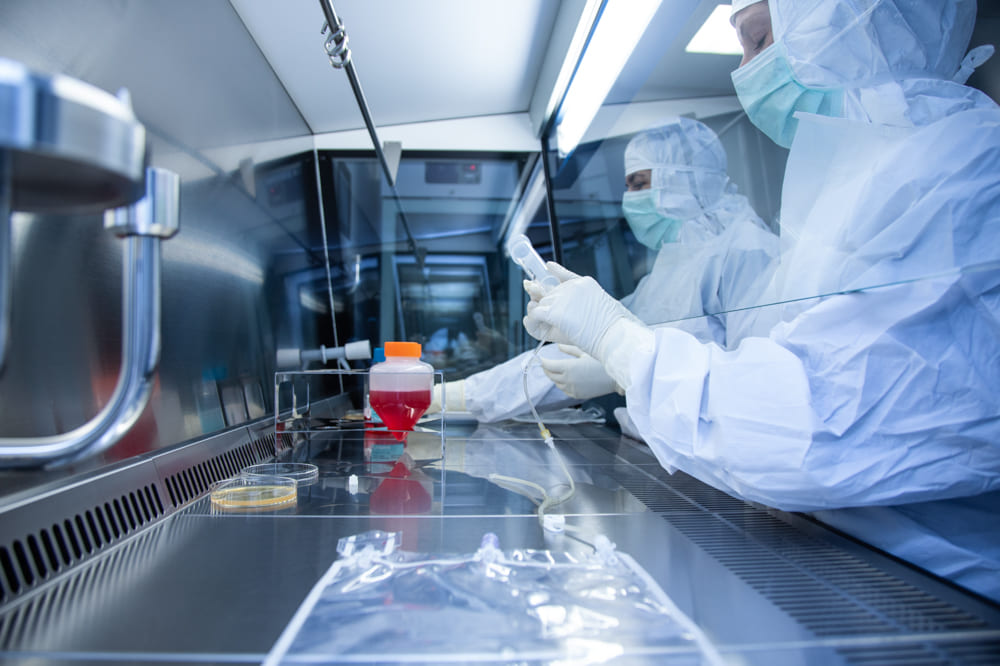The field of medicine is continuously advancing at a rapid pace. One area that has seen tremendous growth in recent decades is biologics – biological products derived from living organisms. Biologics have transformed the treatment of many serious diseases and hold great promise for new discoveries that can alleviate human suffering. This article explores the world of biologics – what they are, how they work, key areas they have impacted and the future outlook.
What are Biologics?
Biologics, also known as biological medicines or biopharmaceuticals, are medicines created from living cells cultured in laboratories. They differ from chemically synthesized small molecule drugs in that they are much larger and more complex molecules. Biologics include vaccines, blood components, allergenics, somatic cells, gene therapies, tissues, and recombinant therapeutic proteins. Some key features that distinguish biologics include:
– Derived from living cells and organisms: Biologics originate from natural sources like animal, plant or even human cells and tissues. These complex molecules cannot be easily broken down or replicated through chemical means.
– Molecular structure: Unlike conventional drugs which are low molecular weight small molecules, biologics have much larger and complex protein-based structures composed of thousands of amino acids.
– Manufacturing Process: Producing biologics requires manipulating live cells and organisms through biotechnology methods like cell culture, fermentation and purification. This makes replicating their precise molecular structure challenging.
– Specific targets and effects: Biologics have been engineered to interact with specific molecular targets in the body related to certain diseases. They tend to be highly targeted therapies compared to conventional drugs.
Impact on Chronic Disease Management
Biologics have revolutionized the treatment of many chronic illnesses that were previously difficult to manage. Some key therapeutic areas where they have made a large impact include:
Cancer Immunotherapy
Cancer immunotherapies like checkpoint inhibitors work by releasing brakes on patient’s own immune system to recognize and destroy cancer cells. Drugs like pembrolizumab and nivolumab have shown unprecedented survival benefits in metastatic cancers like melanoma, lung cancer and more. Other biologics directly target cancer cellular pathways.
Rheumatoid Arthritis
TNF-alpha inhibitors were the first approved biologics for rheumatoid arthritis which works by blocking tumor necrosis factor – a key driver of joint inflammation. Drugs like infliximab, adalimumab and etanercept have transformed RA treatment, allowing many patients to gain improved physical function and prevent joint damage progression.
Multiple Sclerosis
MS is an autoimmune disorder affecting the central nervous system. Biologic therapies like interferon beta, glatiramer acetate and monoclonal antibodies target specific aspects of MS pathology to slow disease progression and reduce relapses.
Inflammatory Bowel Diseases
Biologics inhibiting TNF-alpha and integrin receptors form the mainstay treatment for Crohn’s disease and ulcerative colitis, inducing remission in patients who failed conventional therapies. Drugs such as infliximab, adalimumab, vedolizumab and ustekinumab have shown strong efficacy.
The above are but a few examples of how biologic therapies have revolutionized management of chronic and debilitating diseases. Their ability to precisely target molecular pathways driving illness pathology has translated to remarkable clinical benefits.
Biosimilars: Increasing Treatment Access
As many biologic drugs lose patent protection over the coming years, this has paved the way for regulatory approval of biosimilars – biologics which are similar but not identical copies of original reference biologics. Biosimilars are manufactured through similar recombinant cell culture methods but contain minor differences in composition.
Rigorous clinical trials and testing is undertaken to demonstrate biosimilarity in terms of safety, purity and potency. Approved biosimilars can offer cost savings of 15-35% compared to reference brands. This provides an opportunity for increasing patient access to life-changing treatments. Some key aspects of biosimilars include:
– Robust regulatory pathway: Regulatory agencies like FDA and EMA have developed stringent guidelines for approving biosimilars that assure quality, safety and efficacy equivalent to reference drugs.
– Interchangeability potential: For some competition classes of biosimilars, the FDA may designate additional interchangeability which allows automatic substitution of reference drugs at pharmacy level.
– Savings potential: Estimates suggest biosimilars adoption in the U.S. alone could save over $54 billion in spending over the next five years. This frees up funds for expanding access.
– Increasing competition: Entry of multiple competing biosimilars further drives down costs and increase patient choice. Over 30 biosimilars are now approved in the U.S. targeting cancer, rheumatoid arthritis and other conditions.
Biosimilars have enabled biologics to transition from exclusive branded drugs to competitive market segments while maintaining stringent standards. This access expansion is permitting treatment of conditions previously deemed unaffordable for many.
The Future of Biologics
While biologics have delivered major breakthroughs, continuous innovation is still driving discoveries in new therapeutic areas. Here are some areas attracting active research:
Gene and Cell Therapies
Biologics approaches leveraging gene editing technologies like CRISPR/Cas9, CAR-T cell therapies and stem cell engineering hold potential for curing diseases like sickle cell anemia, HIV/AIDS, cancer and genetic disorders.
Neurodegenerative Diseases
Research into biologics targeting beta-amyloid, Tau proteins and neuroinflammation aim to arrest or slow progression of Alzheimer’s disease, Parkinson’s disease and related conditions.
Antibody Drug Conjugates
Conjoining powerful cytotoxic agents to antibodies targeting tumor-specific antigens may deliver precise tumor cell killing with limited side effects for cancers.
Bispecific Antibodies
Monoclonal antibodies simultaneously recognizing two different antigens open up possibilities for redirecting immune cells specifically to tumors, infections or autoimmune conditions.
Bioprinting and Tissue Engineering
Advent of 3D bioprinting could enable generation of functional living human tissues and even organ replacements through layer-by-layer deposition of living cells.
*Note:
1.Source: Coherent Market Insights, Public sources, Desk research
2.We have leveraged AI tools to mine information and compile it


